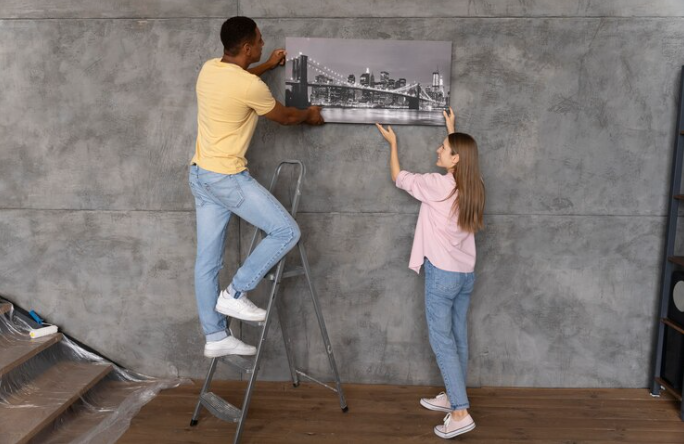
Understanding CMU Walls: A Guide to Strength and Design
CMU walls, or Concrete Masonry Unit walls, are a popular choice in construction. They are strong, durable, and perfect for many types of buildings. Whether you are building a home or a commercial space, understanding CMU walls can help you make better choices.
In this blog post, we will explore the benefits and features of CMU walls. You will learn why they are used, how they are built, and what makes them a great option for your projects. Let’s dive in and discover the world of CMU walls together!
What Are CMU Walls? A Simple Explanation
CMU walls are made from concrete blocks, known as concrete masonry units. These blocks are strong and sturdy, which makes them perfect for building different kinds of structures. They can be used for homes, schools, and commercial buildings. People like using CMU walls because they can withstand harsh weather and provide excellent insulation.
In addition to their strength, CMU walls are easy to install. Builders can stack the blocks quickly, which helps speed up construction. This means projects can finish sooner. Furthermore, these walls can be shaped and designed in many ways. You can paint them or cover them with other materials to make them look nice.
Benefits of Using CMU Walls in Construction
Choosing CMU walls comes with several advantages. First, they are fire-resistant. This means that in case of a fire, they can help protect your home or building. Second, they offer great sound insulation. If you live in a noisy area, CMU walls can keep your space quiet and peaceful.
Another benefit is that CMU walls can help save energy. They keep homes warm in the winter and cool in the summer. This means you may spend less on heating and cooling bills. Overall, using CMU walls can be a smart choice for building a comfortable and safe environment.
How CMU Walls Are Made: A Step-by-Step Process
Making CMU walls involves several important steps. Here’s a simple overview of the process:
- Raw Materials: The first step is gathering the right materials, like cement, water, and aggregates.
- Mixing: Next, these materials are mixed together to form concrete.
- Molding: The wet concrete is then poured into molds to create the blocks.
- Curing: After molding, the blocks need time to harden. This process is called curing.
Once the blocks are ready, builders can begin constructing the walls. This step involves stacking the blocks in a careful pattern and using mortar to hold them together.
Comparing CMU Walls to Other Building Materials
When building a structure, it’s important to choose the right materials. Here’s how CMU walls compare to other options:
- Wood: Wood is lighter but not as durable. It can rot and is less fire-resistant.
- Brick: Brick is strong but can be more expensive and harder to work with than CMU.
- Steel: Steel is very strong but can be prone to rust if not treated properly.
Overall, CMU walls offer a great balance of strength, cost, and ease of use. They are often a top choice for many builders and homeowners.
Common Applications of CMU Walls in Different Buildings
CMU walls are versatile and can be used in various types of buildings. Here are some common applications:
- Residential Homes: Many homeowners choose CMU walls for their durability.
- Schools: CMU walls are often used in schools because they are safe and fire-resistant.
- Commercial Buildings: Businesses appreciate CMU walls for their strength and energy efficiency.
These walls are also used in retaining walls and sound barriers, making them valuable for different construction needs.
How to Maintain and Care for CMU Walls
Taking care of CMU walls is important for keeping them in good shape. Here are some tips:
- Regular Inspections: Check for cracks or damage. Early detection can help prevent bigger problems.
- Cleaning: Keep the walls clean by washing them with water and mild soap.
- Sealing: Apply a sealant to protect the surface from moisture and stains.
By following these simple steps, you can ensure that your CMU walls remain strong and beautiful for many years.
Cost Considerations When Choosing CMU Walls
When planning a construction project, cost is always a concern. Here are some factors that can affect the price of CMU walls:
- Material Costs: The price of concrete and other materials can vary.
- Labor Costs: Hiring skilled workers to install CMU walls may add to the overall cost.
- Design Complexity: More complicated designs may require more time and resources.
Despite these costs, many find that the long-term benefits of CMU walls make them a worthwhile investment.
Tips for Working with CMU Walls: What You Should Know
If you are considering CMU walls for your project, here are some useful tips:
- Plan Ahead: Make sure you have a clear plan for your design and materials.
- Hire Professionals: Skilled workers can ensure the walls are built correctly.
- Consider the Environment: Think about how the local climate may affect your CMU walls.
By following these tips, you can successfully integrate CMU walls into your building plans.
Future Trends in CMU Wall Construction
Looking ahead, several trends may shape the future of CMU walls. These include:
- Sustainable Practices: More builders are focusing on eco-friendly materials and methods.
- Smart Technology: Incorporating technology can enhance the performance of CMU walls.
- Design Innovations: New designs and styles may make CMU walls even more appealing.
By staying informed about these trends, you can make better choices for your construction projects.
Conclusion
In CMU walls are a fantastic choice for many building projects. They are strong, durable, and provide great insulation. Whether you are building a home, school, or commercial building, using CMU walls can help make your space safe and comfortable. Understanding their benefits and features can help you make smart choices for your construction needs.
Choosing CMU walls also means you are investing in a long-lasting solution. With proper care, these walls can last for many years. So, if you’re thinking about building or renovating, consider using CMU walls. They offer a mix of strength, energy efficiency, and design flexibility that is hard to beat!
FAQs
Q: What is a CMU wall?
A: A CMU wall is made from concrete blocks called concrete masonry units. They are strong and used in many buildings.
Q: Are CMU walls fire-resistant?
A: Yes, CMU walls are fire-resistant, helping to protect your home or building in case of a fire.
Q: Can CMU walls be insulated?
A: Yes, insulation can be added to CMU walls to improve energy efficiency and keep spaces comfortable.
Q: How long do CMU walls last?
A: With proper care, CMU walls can last for decades, making them a durable choice for construction.
Q: Are CMU walls eco-friendly?
A: Yes, they can be made from recycled materials and offer good energy efficiency, making them an eco-friendly option.
You may also like
Archives
Calendar
| M | T | W | T | F | S | S |
|---|---|---|---|---|---|---|
| 1 | 2 | 3 | 4 | 5 | 6 | |
| 7 | 8 | 9 | 10 | 11 | 12 | 13 |
| 14 | 15 | 16 | 17 | 18 | 19 | 20 |
| 21 | 22 | 23 | 24 | 25 | 26 | 27 |
| 28 | 29 | 30 | 31 | |||

Leave a Reply